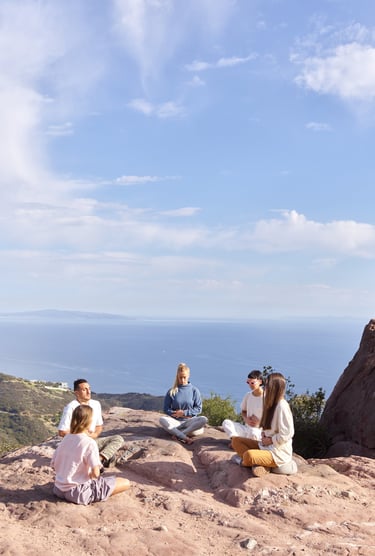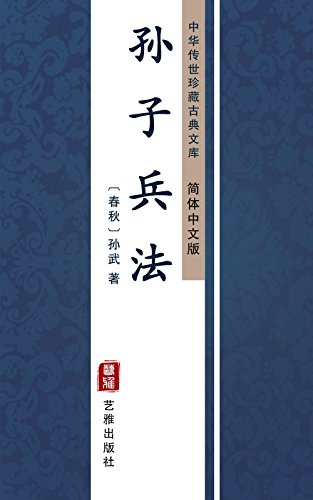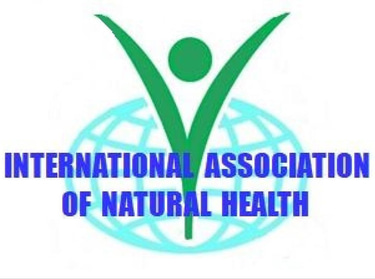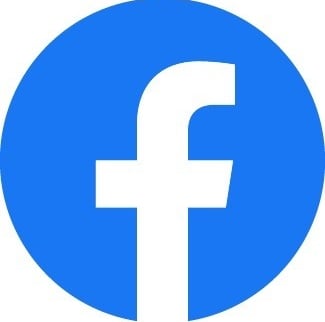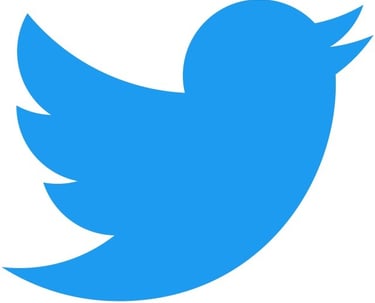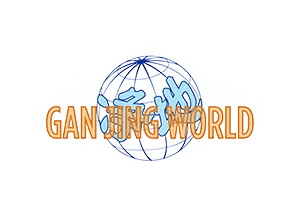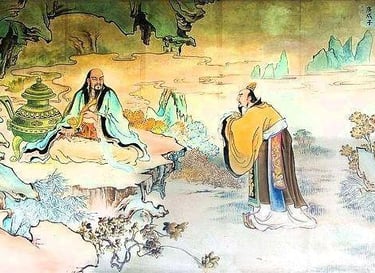

Traditional Chinese Medicine and "The Art of War"
By Dr. Zhu Weimin
In China, during the Warring States period over two thousand years ago, Sun Zi (544 BC - 470 BC or 496 BC) wrote a work titled "The Art of War" (孙子兵法). It is a philosophical treatise on warfare that has influenced military leaders of various countries and leaders in all fields for over two thousand years. It can be said that this work has withstood the test of time and is exceptional.
Philosophy is the science that guides all other sciences, and traditional Chinese medicine is built upon a philosophical foundation. Therefore, the principles of Chinese medicine in terms of theory, methods, prescriptions, and remedies naturally align with the principles of Sun Zi's "The Art of War." Treatment based on Sun Zi's principles enhances the effectiveness of patient care and the overall health of humanity. After reading "The Art of War," one can gain a clear understanding of Chinese medicine. Thus, in addition to philosophical concepts such as yin and yang, the five elements, and differential diagnosis, "The Art of War" should also serve as an important source of theoretical guidance for Chinese medicine. It is not surprising that the renowned physician of the Qing Dynasty, Xu Lingtai (1693-1771), wrote a work titled "Treating with Medicines as if Conducting Military Tactics."
What is Chinese Medicine, in reality?
Some people say, "Even though Chinese medicine is not scientific, it can solve certain problems." What does that mean?! If it can solve problems, then it is undoubtedly a science; it's just that you may not be aware of it. Those who make such statements inevitably measure Chinese medicine against their own concept of "science" and conclude that Chinese medicine is not scientific. We must understand what most people mean by "science." For them, science relies on the use of numbers, images, and measuring devices to explain everything. Isn't this the system that denies yesterday's theories and will deny today's theories tomorrow? However, you must know that the concept of science you have can only explain five percent of phenomena visible to the naked eye. Such a concept of science may currently label Chinese medicine as unscientific, but it could label it as highly scientific tomorrow.
Some people say, "Different Chinese doctors prescribe different medicines for the same patient; that's not scientific." Look at how Sun Zi addresses this issue: "Water takes the shape of the place it occupies, it avoids high places to seek lower ones; the form of military forces is to avoid the solid and strike the void. Water adapts to the terrain to control its flow, military forces adapt to the enemy to achieve victory. Thus, military forces have no constant form, water has no constant form; those who can adapt to changes in the enemy and achieve victory are called geniuses." The variations in diseases are extraordinarily complex; disease pathogens avoid strength and attack weakness, and the severity of a disease is determined by the patient's environment, season, and lifestyle habits. This is also without a constant form. Chinese medicine does not treat all patients with the same illness with the same medicine; it employs different treatment methods at different stages of the disease and continually adapts treatment based on the disease's progression. Each Chinese doctor analyzes, diagnoses, and solves problems in their own way, based on their expertise. Even though the specific methods may differ, the fundamental principles are not wrong, unless one is a poor doctor. Isn't this precisely what Sun Zi called genius? Where is the lack of scientific nature in all of this? Chinese medicine is similar to warfare, where the doctor is the general who must master and understand the entire disease development process, the patient's constitutional characteristics, the environment, climate, seasons, as well as the effects and potency of the medicines they use. After a thorough analysis, they seek the opportunity to prevail and defeat the adversary. This is called "Know your enemy and know yourself, and you will never be in peril." If you say this is not scientific, can you then propose a scientific method for generals on the battlefield to achieve victory?
How does Chinese Medicine treat diseases?
Chinese Medicine is based on two fundamental concepts: a holistic view and differential diagnosis. The holistic view requires physicians not to forget the connection between the human body, the environment, and the universe, as well as the connection between the parts and the whole of the body. Symptoms in the ears may be related to the kidneys, eye symptoms may be related to the liver, and an ailment in the head may be treated using methods applied to the feet or hands. This theory and practice have a history of at least eight thousand years in China.
Differential diagnosis demands that physicians fully understand the complexity and variability of diseases. They must distinguish between cold and heat, deficiency and excess, yin and yang, surface and interior, external heat and internal cold, internal heat and external cold, upper heat and lower cold, lower heat and upper cold, true and false, deficiency and excess, removing roughness and selecting purity, eliminating the false to preserve the true. All of this is very similar to what a general would do before a battle. They all do the same thing, which is to analyze the forces at play (the disease and the treatment or other therapeutic method) or make calculations. As Sun Zi said, "One who makes many calculations wins; one who makes few calculations loses, and what about one who makes no calculations? I deduce that the victor is seen through this." The more calculations you make, the more likely you are to win; the fewer you make, the less likely you are to win. What about making none at all?
When a traditional Chinese physician takes your pulse, they have already made mental calculations. This is called "Making calculations before the battle, making many calculations to win, knowing the enemy and knowing yourself to never be in danger."
Sun Zi's "The Art of War" adopts the concept from the Book of Changes (Yi Jing), which values virtue and the respect for life. It regards weapons as untimely instruments and not worthy of a noble person. They should only be used if there is no other choice, which is why it strongly advocates "Subduing the enemy's plans without fighting." The goal is to cause the least harm possible to life. Since ancient times, Chinese medicine has required every physician to prioritize the healing of the sick and the relief of their pain. Patients, whether rich or poor, noble or humble, are equal in the eyes of physicians. Using medicine for personal gain is unthinkable. This approach aligns with the humanistic thinking of Sun Zi's "The Art of War." Therefore, the treatment method chosen by Chinese Medicine is the one that is simplest, least expensive, has the fewest side effects, and is most beneficial to patients, as long as it allows for the earliest possible restoration of health. This includes the use of Chinese medicine, dietetics, massage, acupuncture, music therapy, self-training, qigong, and other methods.
The method of treatment in Chinese Medicine is the most sophisticated.
Sun Zi said, "The best strategists win by countering plans, then by countering alliances, then by countering armies, and finally by attacking cities. Attacking cities is a last resort." According to historical records, from the Warring States period to modern times, the treatment of depression in Chinese medicine was primarily carried out through psychotherapy techniques and not by the use of medication; this is what "winning by countering plans" means, without the need for a single bullet or shot. For example, the story of the renowned physician from the Warring States period, Wen Zhi (around 500-400 BC), who used the method of inducing anger to treat King Min of Qi, or the story of Zhu Danxi (1281-1358), one of the Four Great Masters of the Jin-Yuan era, who used the method of inducing anger to treat a severely melancholic patient with loss of appetite due to unrequited love. The principle is based on the theory of the Five Elements and their mutual generation and control, where anger controls overthinking. This type of treatment is both quick and effective, requires no medication, and has no side effects. However, in modern times, many doctors in Chinese hospitals seem to have forgotten or are unaware of this method.
Let's see how Chinese Medicine "counters alliances." Take the example of the renowned pediatric physician of the Song Dynasty, Qian Yi (1032-1113), who treated the crown prince suffering from sudden convulsions. Chinese medicine identifies this type of convulsion as an excess of liver wind, but instead of directly treating the liver, Qian Yi strengthens the spleen using the theory of the Five Elements. By strengthening the spleen, the lung (metal) is strengthened, and the lung (metal) controls the liver (wood), which stops the convulsions. The treatment is effective with a single prescription, and the results are incredible. It's like on the battlefield when the state of Zhao attacks; instead of directly fighting Zhao, we seek the assistance of the state of Qi, which can easily overpower Zhao. This strategy is called "countering alliances," gaining diplomatic support to defeat the enemy. "Countering plans" and "countering alliances" are commonly used strategies in Chinese Medicine, considered high-level strategies. Chinese Medicine rarely uses the direct approach of attacking or killing the pathogen (local lesion) - a method some people might consider as a precise treatment approach. However, if the symptom is only a manifestation and not the true cause of the disease, is it really a precise approach? Sun Zi regarded this as a low-level approach.
It's important to note that the method of strengthening the spleen and stomach in Chinese Medicine, initiated by Qian Yi, gave rise to a school of thought focused on the spleen and stomach. Its founder was Li Dongyuan (1180-1251), one of the Four Great Masters of the Jin-Yuan era. Strengthening the spleen and stomach has the ability to treat many difficult diseases, even save lives. For instance, the renowned physician from the late Qing Dynasty and the early Republic, Zhang Xichun (1860-1933), saved the lives of many women suffering from postpartum weakness using the method of strengthening the spleen and stomach.
How does Chinese Medicine use medicines?
(1). Since ancient times, Chinese Medicine has always favored minimal or even the absence of medication. It seeks to be economical and follows the principle of the "cooperation of the emperor and his ministers," where some medicines are primary while others are subordinate, much like the arrangement of troops on a battlefield.
(2). In Chinese Medicine, the same medication is not used to treat all patients suffering from the same disease. If that were the case, there would be no need for analysis, as Sun Zi says, "let alone when no analysis is done." The physician prescribes medication even before the patient has had the opportunity to explain all the details of their illness, which, in most cases, will not lead to effective healing. This is strictly prohibited.
(3). "Therefore, victory in war is preferable to prolonged conflict," and in Chinese Medicine, patients are never encouraged to take medication long-term. As Xu Lintai explained in "Reflections on the Origin of Medicine: The Use of Medicines Compared to Military Tactics," "the use of weapons is intended to eliminate evil, and they are only used as a last resort; the use of medicines is intended to attack the disease, and they are also only used as a last resort." In other words, weapons should only be used in cases of extreme necessity, and tranquility and moderation are preferred. Weapons are not used without reason, just as medicines are not used without necessity. The strategy of using medicines is comparable to that of using weapons, following a common principle. Therefore, medicines are used to treat the disease, and if they cannot cure it, no medication is used, including tonics. Except for medicinal foods.
(4). Xu Lintai explained: "Medications should not be used lightly, just as weapons should not be used lightly. When their use is unavoidable, one must first have a thorough understanding of one's own potential and that of the enemy, plan a complete strategy, and only then is the attack certain." Xu Lintai also emphasized: "A mediocre doctor cannot discern the location of pathogens in the meridians and collaterals; they often use a scattergun approach, frequently prescribing two or three dozen medications or even more. This is what's called excessive medication use. Sometimes, pathogens may be suppressed, but the individual's vital energy is also weakened." This is akin to using strategies that harm the enemy while causing significant damage to oneself. When examining traditional Chinese medicinal formulas, it's observed that there are rarely more than ten medicines in a formula, and five to eight medicines are sufficient. Quantity matters little, but quality is paramount. In Chinese Medicine, it is essential to target the problem precisely. Legendary physicians like Sun Simiao and Zhang Xichun often prescribed formulas composed of one or two medicines, achieving exceptional results. For example, ginger was used to alleviate pain, longan treated palpitations, and Chinese yam was used to strengthen the body in cases of shock, and so forth.
5. "No war" and "No treatment"
Although Sun Zi's "The Art of War" is a treatise on war and the art of military strategy, its true essence promotes peace, benevolence, and a human-centered philosophy embodied by "no war." "A hundred victories in a hundred battles are not the height of skill. The height of skill is to defeat the enemy without fighting." No matter how skilled you are in combat, even if you win every battle, it doesn't mean it's the best approach among all the good methods. In fact, as Sun Zi says, every battle results in human losses, sorrow, hatred, endless conflicts, and post-war problems of famine and disease. Therefore, the best way is to subdue the enemy without fighting. This approach is the best among all the good methods.
Many Chinese physicians have succeeded in treating diseases accurately, winning in all battles, but it's not the best approach among all the good methods. Because, just like war, medicines can have toxic side effects; sometimes treatment worsens the disease. Sometimes toxins remain in the body, causing ongoing suffering. Moreover, even if medicines cure the disease, can they prevent a recurrence? Can they guarantee a disease-free future? Can they extend an individual's life? The answer is negative. Therefore, the best way is to heal the disease without using medicines. This is what "no treatment" means (do not confuse these words; be sure to read the article to the end). "No treatment" is also imbued with the ideals of peace, benevolence, and a focus on the individual. It's also the essence of Chinese Medicine.
Not waging war doesn't mean doing nothing at all, or victory will not be possible. You can use strategies or diplomatic means, but the best approach is to strengthen and optimize your own being, to implement reforms to develop your noble character and abilities, to shine brilliantly, to attract the enemy to surrender voluntarily, thereby achieving the submission of the enemy without having to wage war. However, the implementation process can sometimes be as challenging and devastating as a battle. However, by acting in this way, one achieves lasting happiness and peace for everyone, which war cannot achieve.
The "not treating" method in Chinese Medicine does not mean total inaction. Otherwise, it would be impossible to cure the disease. Instead, it relies on strategies, diets, music therapies, and the most effective method involves strengthening and optimizing one's own body, significantly boosting the immune system. It's about activating the body's self-healing system, and in the end, you'll find that not only have you treated one disease, but several other ailments you had before have also disappeared. Moreover, you'll be less likely to develop severe diseases in the future, you'll appear younger, your appearance will improve, and your life expectancy will increase. This method does indeed exist, but it's important to note that "non-treatment" is more challenging than any other treatment method, and most people cannot follow it. This is the method taught 4,800 years ago by Venerable Guang Chengzi, who lived for 1,200 years, and he told us: "To ignore, not to listen, to calm the mind through silence, this is how longevity is achieved." Modern science has proven that meditation has many effects that medications cannot match, especially in terms of extending life, improving mental health, beautification, significantly increasing immunity, pain tolerance, and reducing inflammation, among others. However, in emergency situations, one should not hesitate to consult a doctor. If you find daily meditation too difficult to maintain, it's better to follow necessary traditional treatments. Although this method is difficult to follow, if you persist, you will achieve happiness and health for your entire life, which no medication can achieve.
In the West, the Prussian Carl von Clausewitz (1780-1831) also published a book on war titled "On War." He emphasized the attack, advocating that proactive attack was the best defense, considering the attacker always had an advantage. While this theory may be valid in some situations, it became outdated over time, especially with the invention and use of machine guns, which reinforced the role of defense.
The longevity of Sun Zi's "The Art of War" can be explained by its philosophy and emphasis on life. Similarly, Chinese Medicine has endured through the centuries due to the power of kindness. When examining prescriptions from renowned physicians such as Zhang Zhongjing, many ingredients are derived from common daily life foods, kitchen spices, and more. These treatments have always been designed for the well-being of patients, especially the poorest, without commercial consideration. Chinese Medicine has shared preventive and curative care methods that require no monetary investment from patients, yet it has never thought that this might harm doctors' income. It is in this spirit that Chinese Medicine has received divine assistance. As Qian Yi said, "With a pure spirit, one can achieve the infinite in medicine." Kindness possesses infinite power; it endures.
October 2023.
You might also be interested in the article below :
Scientific research: The practice of Qigong significantly enhances immune capacity.
